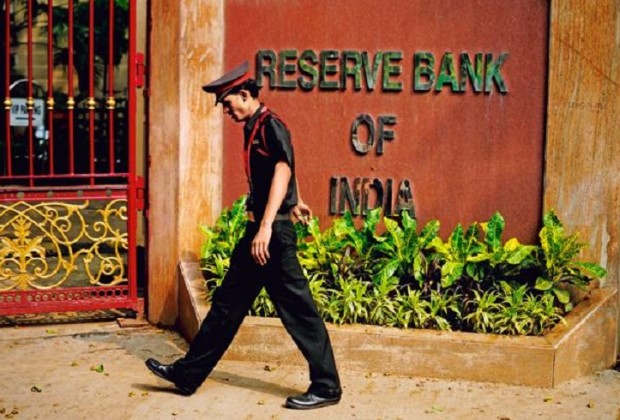Latest Posts
-
News 0
Europe’s star performers guide clients in turmoil
To describe the past year as “difficult” for traders would be an understatement. The collapse of Lehman Brothers in September unleashed a tidal wave of volatility that sent traders running for cover. Trading strategies were blown apart, the hedge fund industry crumbled and it was touch and go whether the global economy would follow suit. As if that weren’t enough, laws aimed at liberalising Europe’s financial markets were adopted, leading to the launch of many execution venues. Managers were faced with grasping the complexities of a new market structure, even as they dealt with the ravages of the worst recession in 70 years. Electroni...On August 25, 2009 / By Kurt Osterberg -
News 0
Checks and balances
The region compensates for its market size and higher risk with better returns, analysts said, with property yields ranging from about seven percent for a prime building in Warsaw’s central business district to about 10 percent in Moscow. This compared well against London where prime offices yielded five percent last year, but as the downturn drove yields in mature markets higher this year, some emerging Europe investors are seeking even higher returns through distressed buys. Still, many are aware of the various risks involved in purchasing in markets they may not be familiar with. “If you can buy in London for six or seven percent, why ...On August 25, 2009 / By Kurt Osterberg -
News 0
Angel Martin: Restructuring is key to the current climate
In the current economic climate many Spanish businesses are turning to restructuring specialists to help them navigate efficiently through difficult times. When it comes to choosing a restructuring advisor, Spanish companies and banks are increasingly seeking a name they trust and a proven track record. KPMG’s Spanish Restructuring team comprises experts from a range of backgrounds including finance, banking, strategy and engineering. The head of the practice, Angel Martin, began his career at KPMG (Madrid and New York), before leaving to work in house for a quoted corporate business in the north of Spain, returning to the flock to launch t...On August 25, 2009 / By Kurt Osterberg -
News 0
Buyers versus sellers
An investment banker associate of mine recently shared an interesting statistic. He said his business, a veteran establishment, currently spends around 80 percent of its time with buyers. This time is spent reassuring them that they’re getting a good deal when buying a company. Now that’s a sign of the times. Rewind two years, and I can almost guarantee you the same bankers were spending 80 percent of their time with sellers. Of course, two years ago the market was a hive of activity and sellers were beating off prospective buyers with a swatter. Today, we find ourselves in a climate where seller and buyer alike are very cautious. Buyers ...On August 25, 2009 / By Kurt Osterberg -
News 0
Mercantilism reconsidered
This question constitutes a Rorschach test for policymakers and economists. On one side are free market enthusiasts and neo-classical economists, who believe in a stark separation between state and business. In their view, the government’s role is to establish clear rules and regulations and then let businesses sink or swim on their own. Public officials should hold private interests at arm’s length and never cozy up to them. It is consumers, not producers, who are king. This view reflects a venerable tradition that goes back to Adam Smith and continues a proud existence in today’s economics textbooks. It is also the dominant perspectiv...On August 25, 2009 / By Kurt Osterberg -
News 0
ETFs and emerging markets
Emerging markets and exchange traded funds (ETFs) have one thing in common: both are destined to hold increasing importance for investors for many years to come. Emerging markets offer some of the strongest long-term return prospects as they take their place in the global economy of the 21st century. The BRIC countries are widely predicted to become some of the biggest economies, yet there are many other nations set for growth too, in Asia, Latin America, Eastern Europe and the Middle East. The growing importance of ETFs stems from the fact that they offer investors one of the most efficient, cost-effective and convenient ways to access retur...On August 25, 2009 / By Kurt Osterberg -
News 0
Red squared
Russia’s budget deficit could reach 7.5 percent of GDP in 2010, stretched by state aid for banks, but economic growth should return after this year’s recession, Finance Minister Alexei Kudrin said recently. Russia has kept spending high to help the economy out of its first recession in a decade, while tax revenues are falling, in part due to lower prices for the country’s oil exports. Authorities had hoped to cap the 2010 deficit at five percent of GDP, but the Kremlin’s top economic aide Arkady Dvorkovich has stated that the shortfall would likely top six percent, albeit narrowing from the eight percent gap expected this year. “We ...On August 25, 2009 / By Kurt Osterberg -
News 0
Don’t leave home without it
Credit card delinquency figures bring to mind the rock classic “You Ain’t Seen Nothing Yet.” Since last July’s record report – delinquencies jumped to 6.6 percent of all card debt in the first quarter from 5.52 percent – the peak may still be far off. The sunniest forecast in the Obama administration’s stress test suggested that credit card loss rates for banks would climb to between 12 and 17 percent in total over the next two years. This assumed an unemployment rate averaging just about 8.4 percent over the course of this year. Based on the gloomier scenario of 8.9 percent joblessness, the two-year write-off climbs to 20 perce...On August 25, 2009 / By Kurt Osterberg -
News 0
The birth of a paradigm?
Even before the birth of the moniker, corporate social responsibility and sustainability have loitered around the foreground of investment analysis. ESG is becoming increasingly prevalent as not only a part of decision-making but also, as a representation of what traditionalists would consider a new paradigm. Never before have these non-financial factors become such a important issues, let alone formally recognised, so the current popularity of ESG signifies at least recognition of these factors as instrumental in long-term company valuation. In the aftermath of the current recession, the mainstream has sought to identify non-financial factor...On June 17, 2009 / By Kurt Osterberg -
News 0
Barclays to generate £7.3bn
Sure, it’s possible to imagine better news – say £7.3bn in cash from a straight sale instead of a mix of cash and a 20% stake in the enlarged US find manager. But this deal would address the UK bank’s biggest problem: a perceived lack of capital. At first blush, selling all of Barclays Global Investors might look like overkill. Barclays has already agreed to sell iShares, the exchange-traded arm that contributes around a quarter of BGI profits, to private equity house CVC. That deal would increase its core Tier 1 ratio, the standard indicator of capital strength, from 6.7% to 7.3%. A sale of the entire fund management division for cash...On June 9, 2009 / By Kurt Osterberg
Top Posts
-
 The Importance for Individuals to Use Sustainable Chemicals
The Importance for Individuals to Use Sustainable Chemicals
-
 Small Businesses: Finding the Right Candidate for the Job
Small Businesses: Finding the Right Candidate for the Job
-
 How to Write the Perfect Thank You Letter After Your Job Interview
How to Write the Perfect Thank You Letter After Your Job Interview
-
 3 Best Large-Cap Blend Mutual Funds For Enticing Returns
3 Best Large-Cap Blend Mutual Funds For Enticing Returns
-
 China suspected in massive breach of federal personnel data
China suspected in massive breach of federal personnel data








